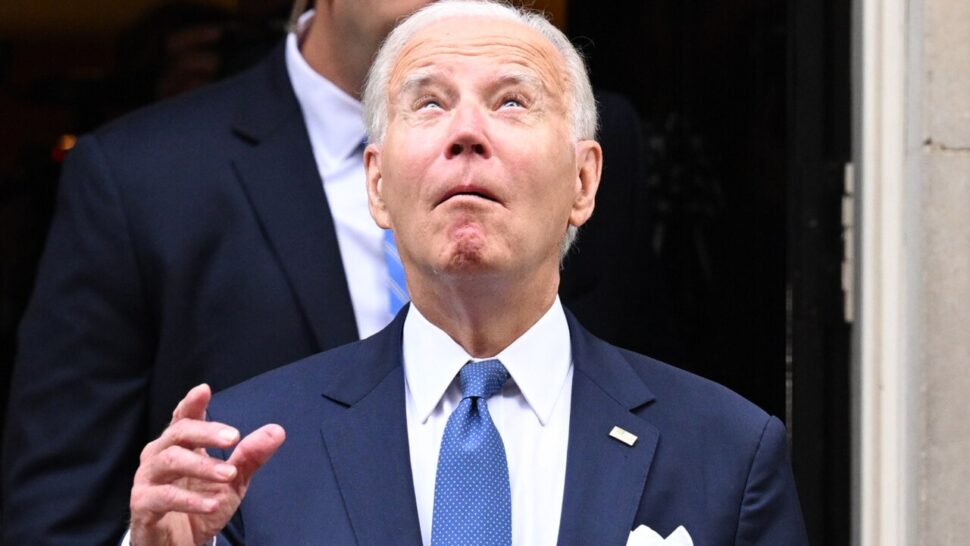It’s disconcerting to see leaders make flippant remarks that can ignite controversy and perpetuate stereotypes. This is the case with President Joe Biden’s recent suggestion that his uncle, a World War II pilot, may have been eaten by cannibals in Papua New Guinea. The statement has sparked outrage among academics from the Pacific nation, who find Biden’s comments not only historically inaccurate but also culturally offensive.
The controversy began when President Biden shared an anecdote about his uncle, who was reportedly lost at sea during World War II. The president suggested that his uncle might have been eaten by cannibals in Papua New Guinea. This narrative, however, is starkly contradicted by military records which indicate that the aircraft was lost over water and not on land where such an incident could even be remotely possible.

Papua New Guinea academics were quick to respond to these claims with indignation. They emphasized that such statements are harmful as they reinforce outdated and incorrect stereotypes of their people as savages. It’s important to note that while cannibalism did exist in Papua New Guinea historically, it was a complex cultural practice tied to specific rituals and warfare customs—not a rampant or indiscriminate act against any “white men that fell from the sky,” as Biden’s comment might suggest.
Trending: Support Mike! MyPillow CEO Mike Lindell Continues Fight For Election Integrity
The backlash from this incident highlights a broader issue: the need for public figures, especially those in positions of power like President Biden, to speak with accuracy and respect about other cultures. Misinformation can easily spread when influential individuals make careless statements without considering their implications or factual basis.
Moreover, this isn’t just about cultural insensitivity; it’s also about honoring veterans and their families with truthful accounts of their service. To suggest such a fate for his uncle without evidence is not only disrespectful to his relative’s memory but also to those who served alongside him and the historical record itself.
For conservatives who value tradition, respect for military service members, and factual discourse, this episode serves as a reminder of why leaders must be held accountable for their words. It’s crucial for those in high office to exemplify integrity in communication—something many feel has been lacking in recent times.
The reaction from Papua New Guinea scholars is more than justified; it’s an assertion of dignity from a community often marginalized or misunderstood by Western narratives. Their demand for accuracy is not just about correcting one man’s mistake; it’s about challenging how indigenous peoples are portrayed globally.
While some may argue that President Biden’s comment was made in passing or without ill intent, it does little to mitigate the impact such remarks have on communities still fighting against colonial-era stereotypes. The swift response from Papua New Guinean academics serves as both rebuke and teaching moment—a call for better awareness among world leaders regarding the histories and cultures they reference publicly.

It remains essential for those at the helm of nations like America—a country often seen as setting standards for others—to lead by example when discussing sensitive topics related to culture and history. Inaccuracies can’t be brushed aside simply because they emerge from casual conversation; they carry weight regardless of context when spoken by someone of President Biden’s stature.

As conservatives seek leadership grounded in truthfulness and reverence for all cultures’ dignity—including our own—it becomes increasingly important to hold our representatives accountable when they fall short of these values. The dialogue surrounding President Biden’s comments reflects more than just concern over one misstep; it echoes a broader call for authenticity and respect within political discourse—a call resonating deeply within conservative circles today.
In light of these events, observers will undoubtedly continue monitoring how public figures address historical narratives moving forward—hoping lessons are learned from instances like these where cultural sensitivity was seemingly cast aside without forethought or consideration of its broader implications.
Sponsors:
Huge Spring Sale Underway On MyPillow Products
Use Promo Code FLS At Checkout
Inflation Buster: Freedom From High-Cost Cell Plans
Freedom From High-Cost Cell Plans Same Phones, Same Numbers, Same Coverage For About Half The Price.




